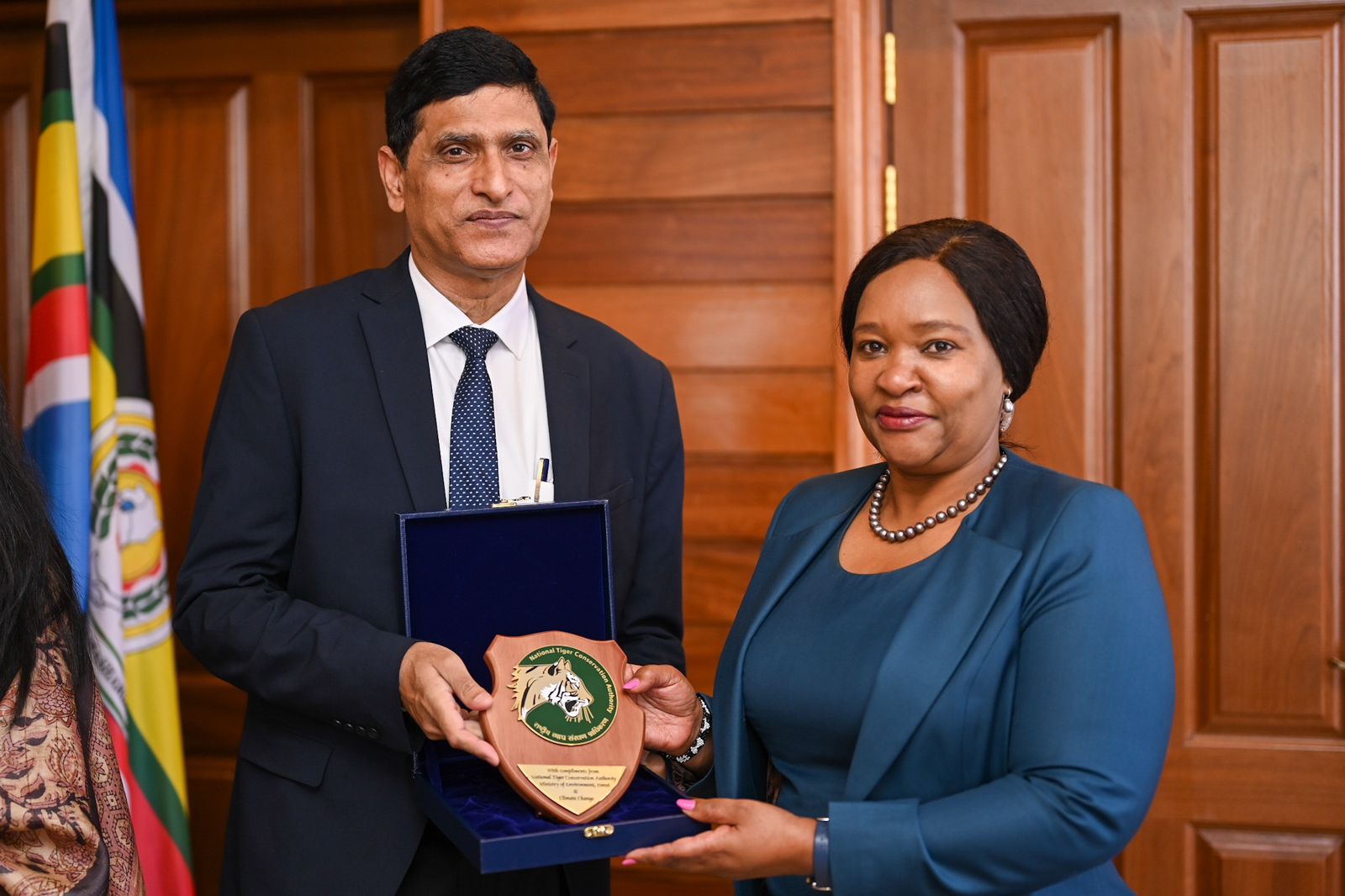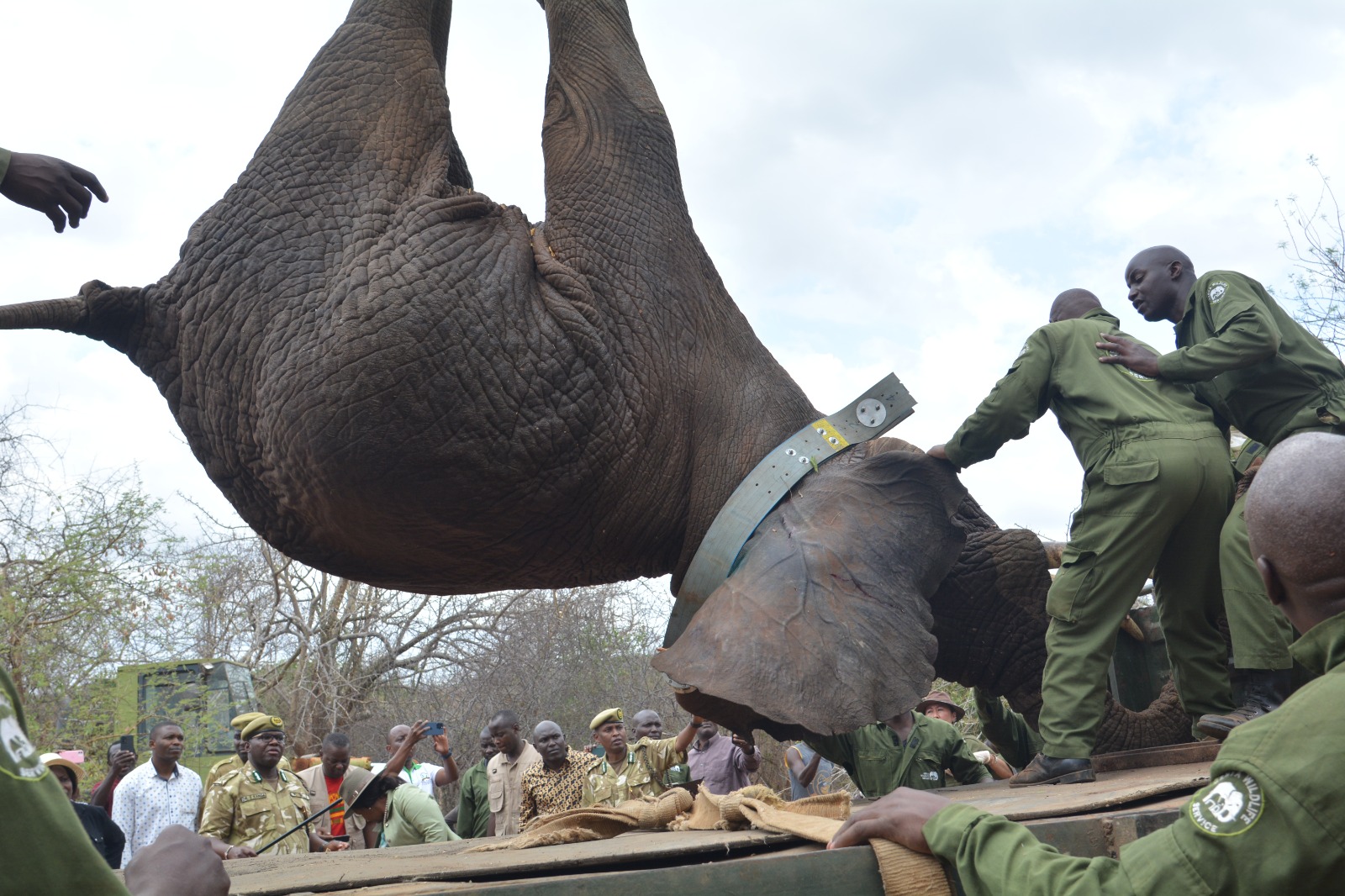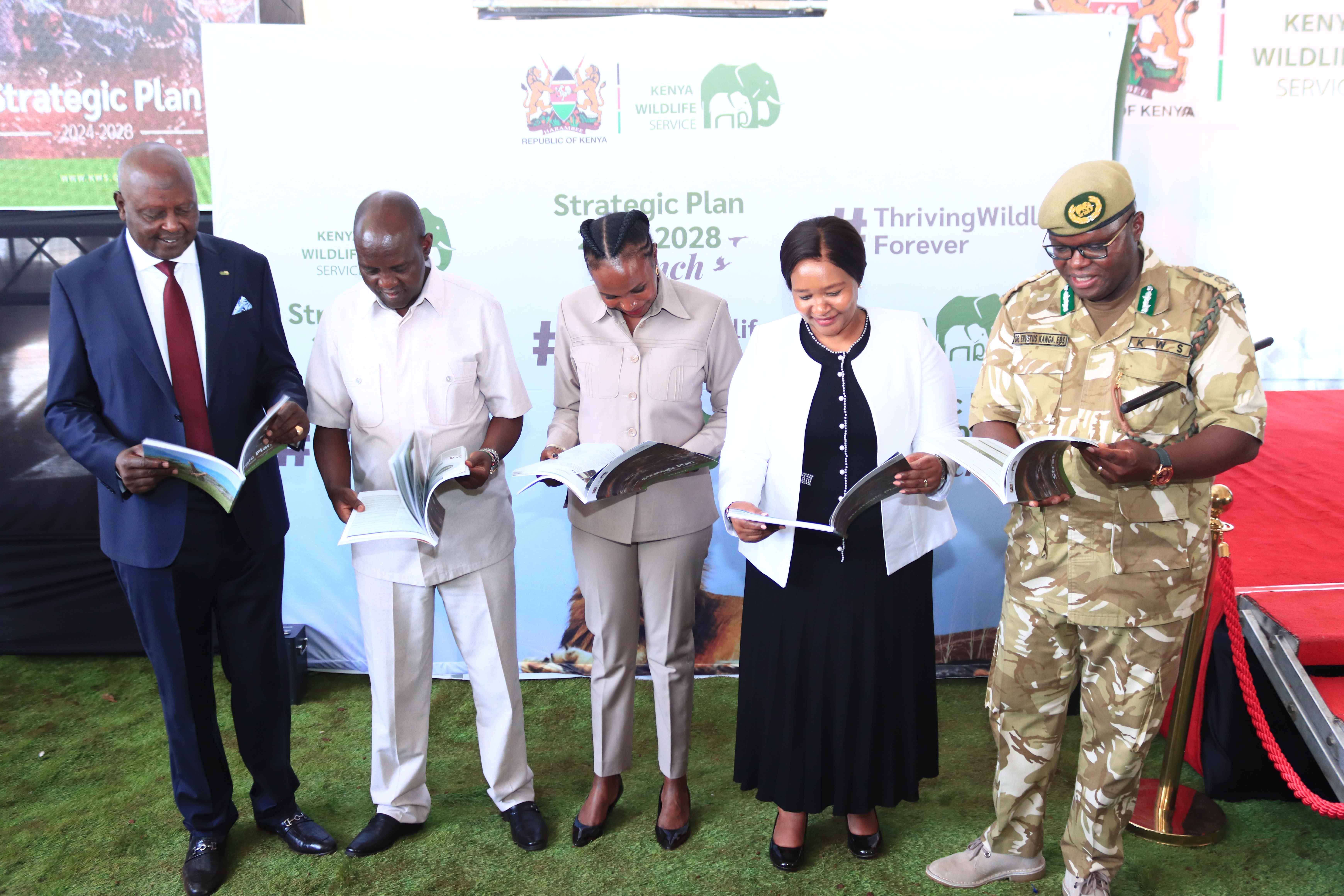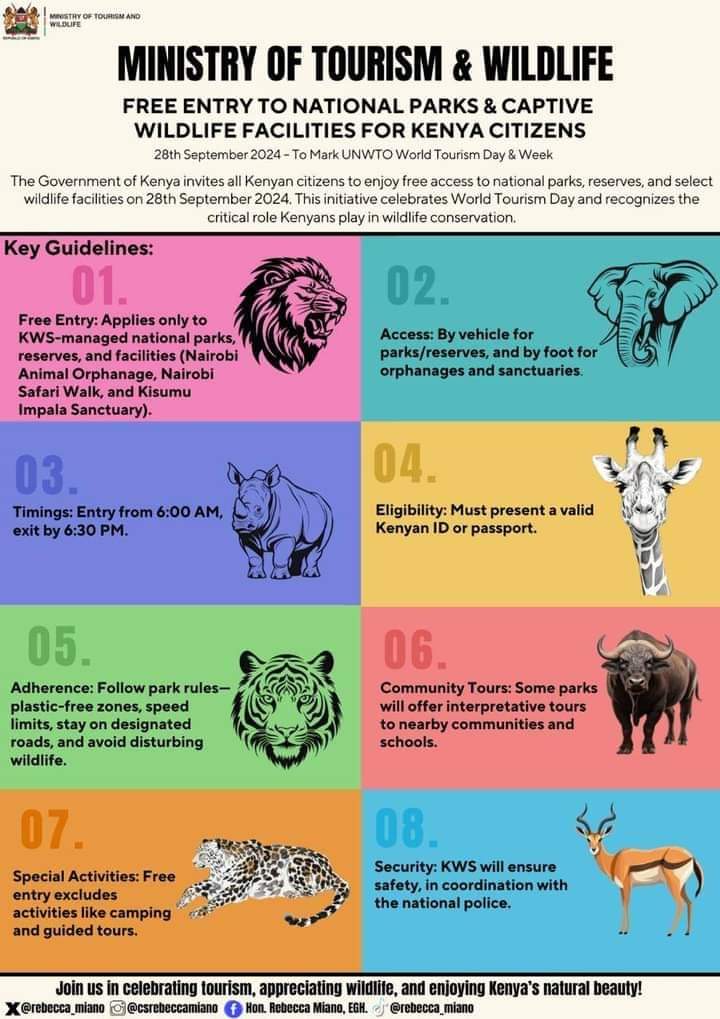Today is an important day for all of us as it underscores the tenacity of the Kenyan people to voice their concerns towards trade on live wildlife and wildlife products. I must commend all the participants in today’s event for their valuable contribution towards ensuring that the voiceless elephant, rhino and other endangered species are not persecuted by humans for monetary gains.
From 2012 to 2015, Kenyans as well as conservation and development partners put their collective efforts towards ensuring the recovery of elephant and rhino population in Kenya. The efforts bore fruits and more efforts are being directed towards ensuring that international trade in the endangered species is stopped. Poaching and trafficking of wildlife products remain a key threat to elephants, rhinos and other endangered species.
For us to win the war on poaching of elephants, rhinos and other endangered species, the demand of ivory and rhino horns as well as products from other endangered species in international markets must end! Demand creates an incentive for poachers. Most of you here today would never buy ivory, and you have no use for rhino horn, anyway! But in some countries in Asia, ivory and rhino horn are valued for prestige andtraditional medicine. During the upcoming CITES Conference of Parties in Colombo, Sri Lanka (CITES COP 18), Kenya is calling for Closure of all ivory markets and Listing of all African elephants to Appendix I;
We know that only elephants should wear ivory! And we also know that rhino horn has NO medicinal value – we need the people in Asia to know this too. The Government of Kenya is committed towards educating governments and people in consumer countries so that they can change their habits to help us save these magnificent species.
Kenya applauds countries that have already closed their domestic wildlife trade markets like China, the United Kingdom and United States of America. The remaining countries should follow suitto ensure trade of wildlife products within their borders is suppressed.
I must commend our conservation and development partners for listening to us and directing their efforts at the national, regional and international level to ensure that demand for elephant ivory, rhino horns and other wildlife products is eliminated. The Government of Kenya will continue to work with all of you to sustain this pressure, especially in source, transit and consumer countries.
I am happy to report that Kenya has turned around the elephant and rhino poaching crisis witnessed between 2011 and 2015. For examples, 38 elephants were lost to poaching in 2018 compared to 384 elephants in 2012. For rhinos, only 4 individuals were poached in 2018 compared to 59 individual in 2013.
I promise that, the Government of Kenya will sustain pressure on poachers to ensure security of elephants, rhinos and other endangered wildlife populations and minimal impacts of poaching to these populations. In addition, the inter-agency collaboration established by different government departments and agencies will be strengthened to sustain arrests and conviction of poachers and their financiers.Kenya will prioritize cooperative efforts to combat transnational wildlife crime with all relevant intergovernmental agencies.
Finally, the Government of Kenyaassures all Kenyans and the world at large that with support from partners and communities, Kenya Wildlife Service is up to the task of leading theprotection of our wildlife. We are appealing to all citizens of the world to cooperate with us in ensuring that our wildlife is secure. Ultimately, we all have a duty to save our great species as we all echo….NO MARKET NO TRADE, AS WE MARCH AGAINST EXTINCTION.









Leave A Comment